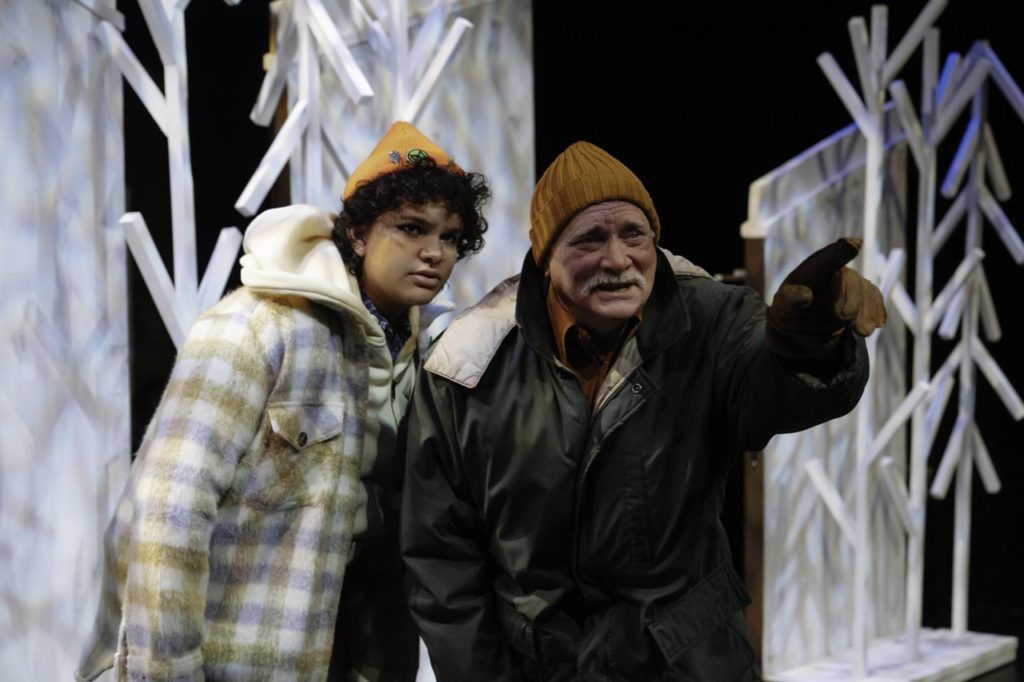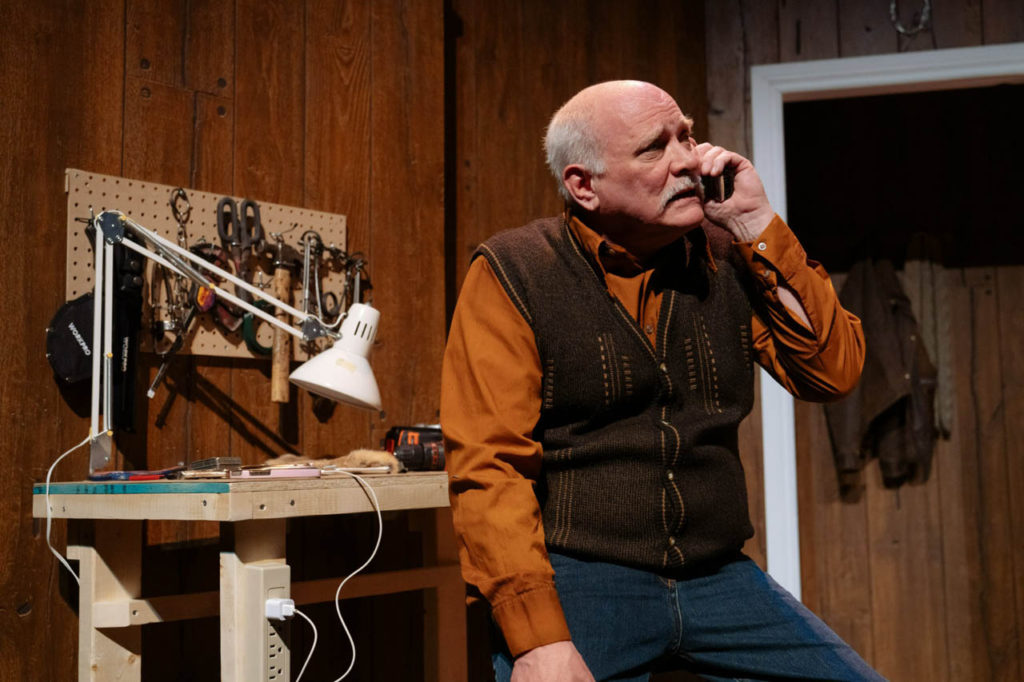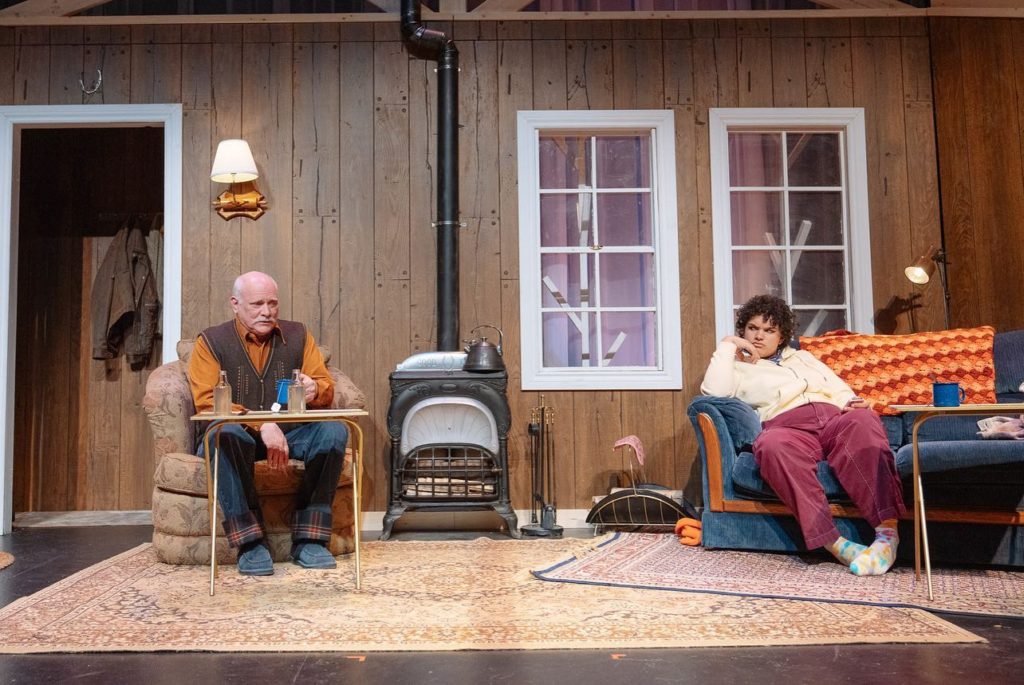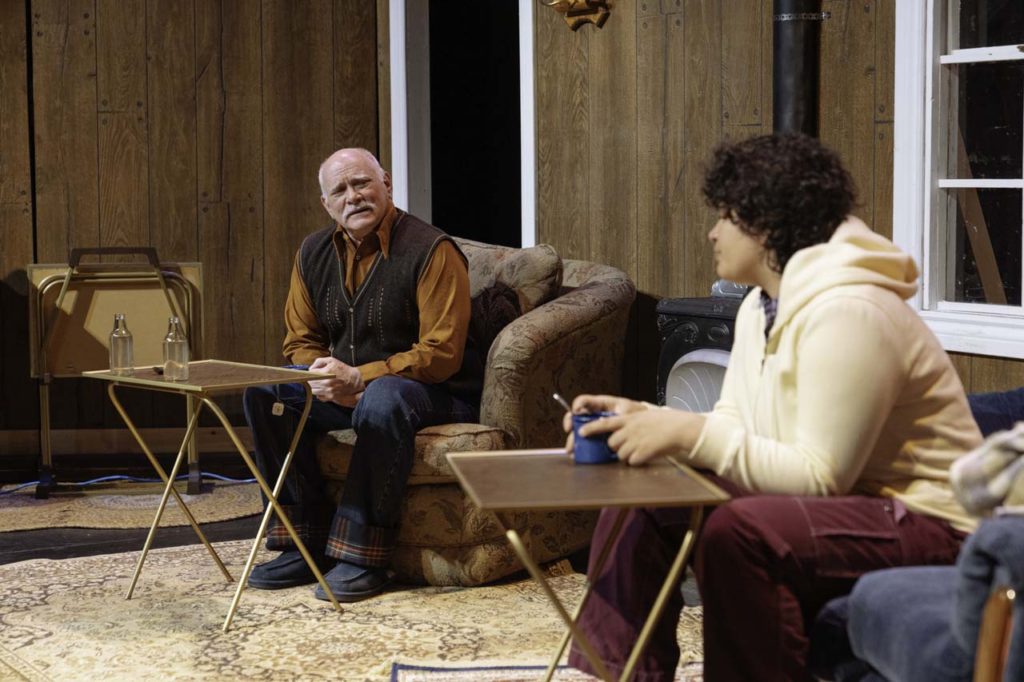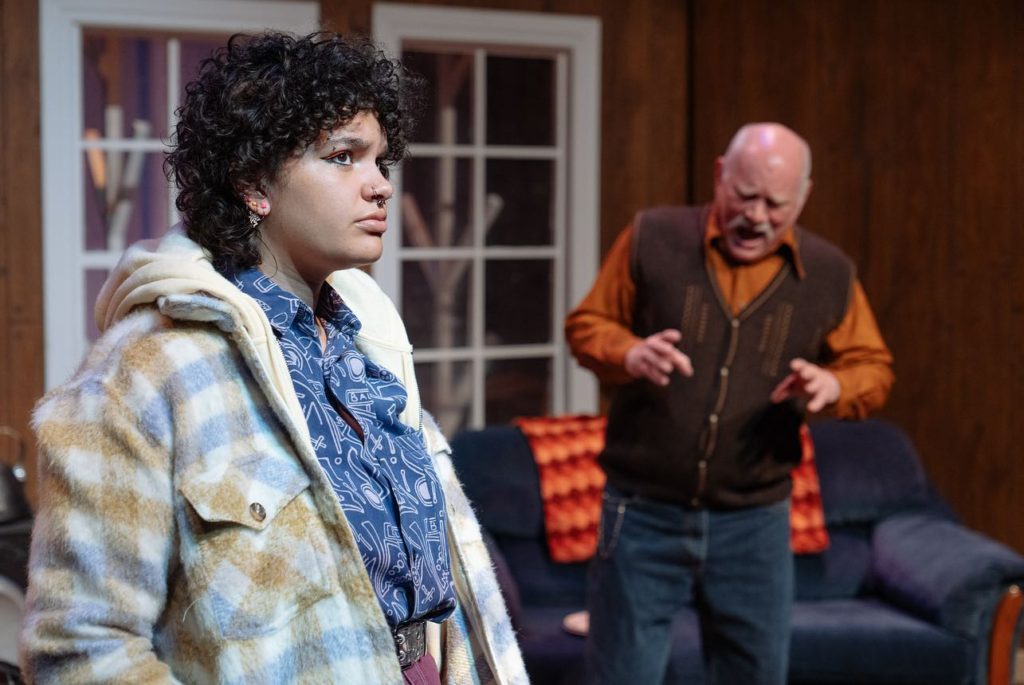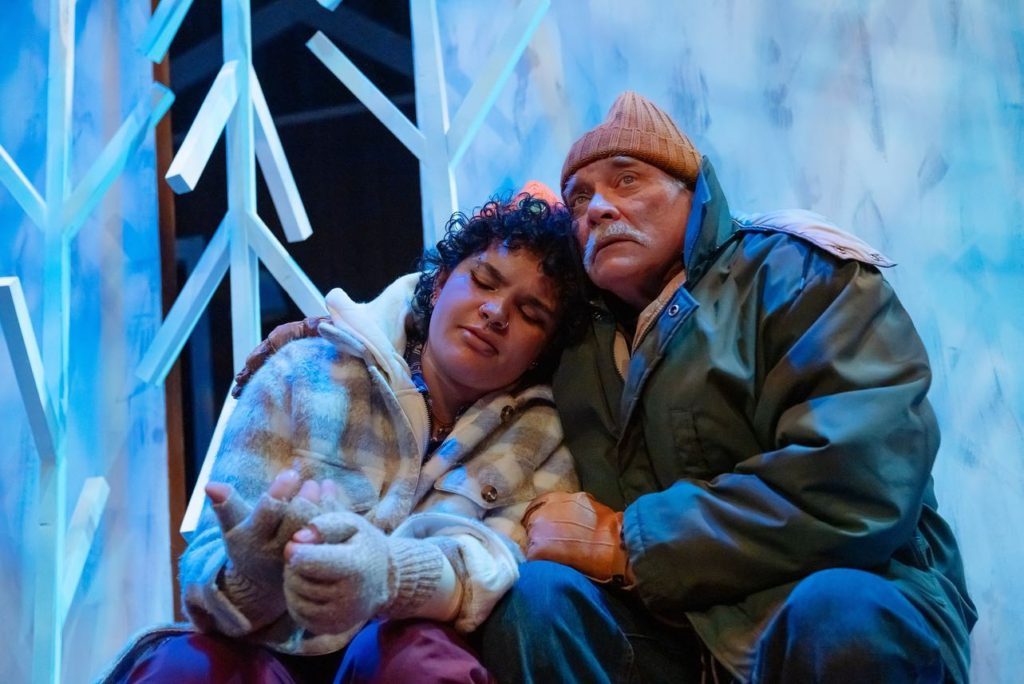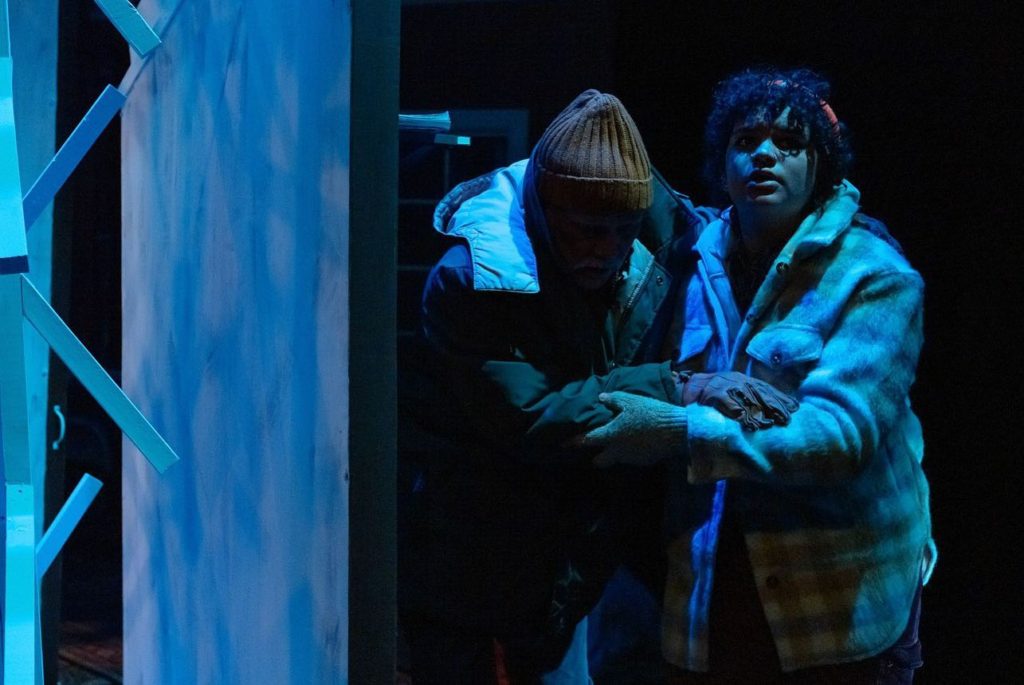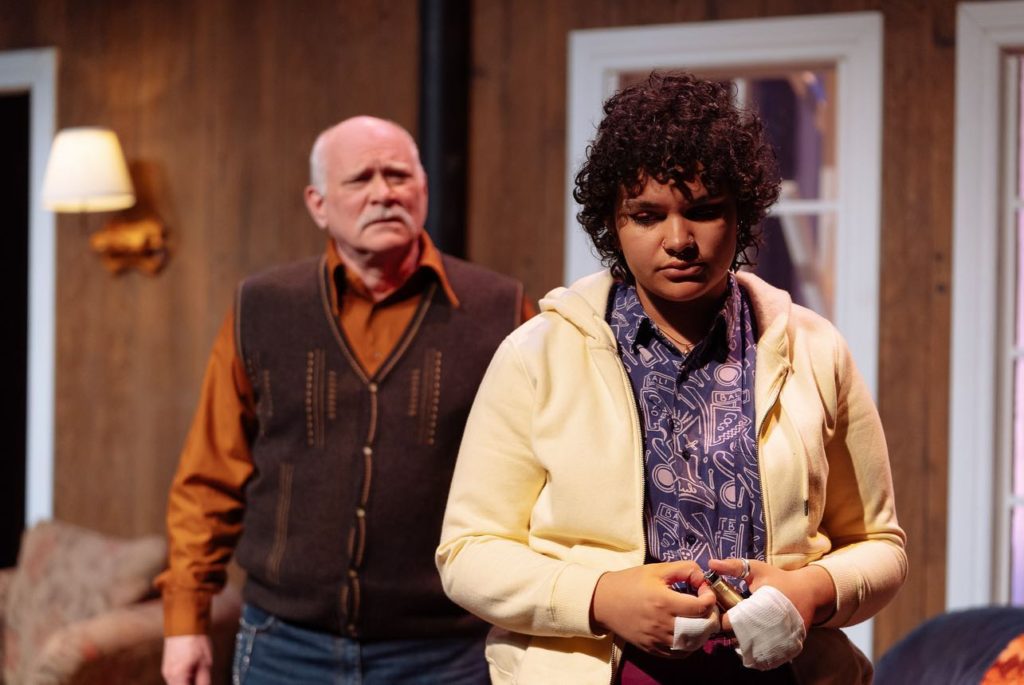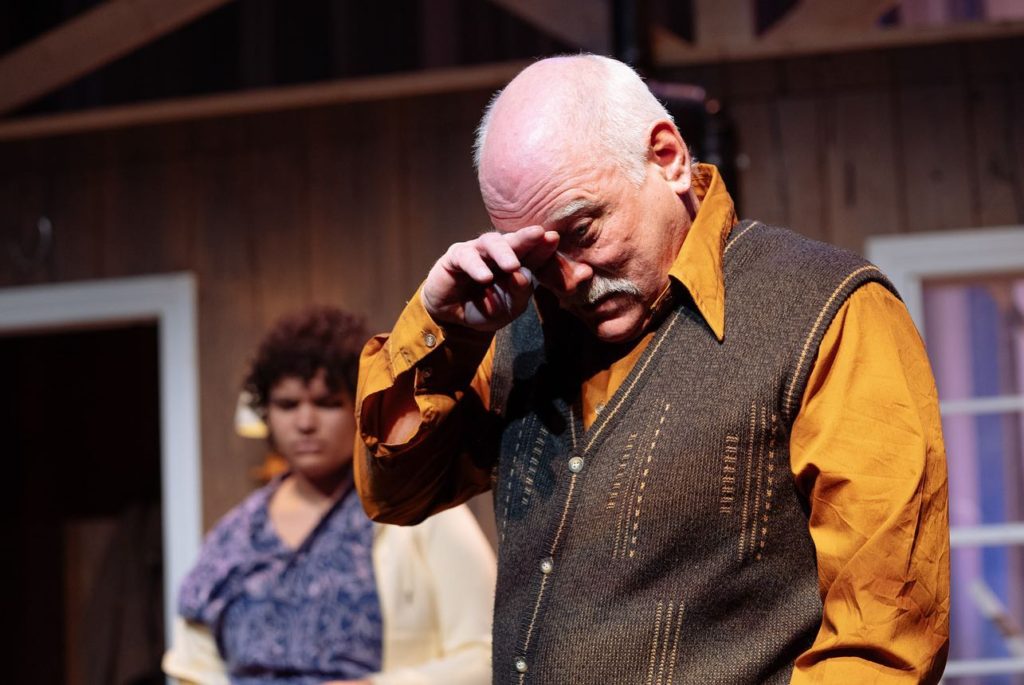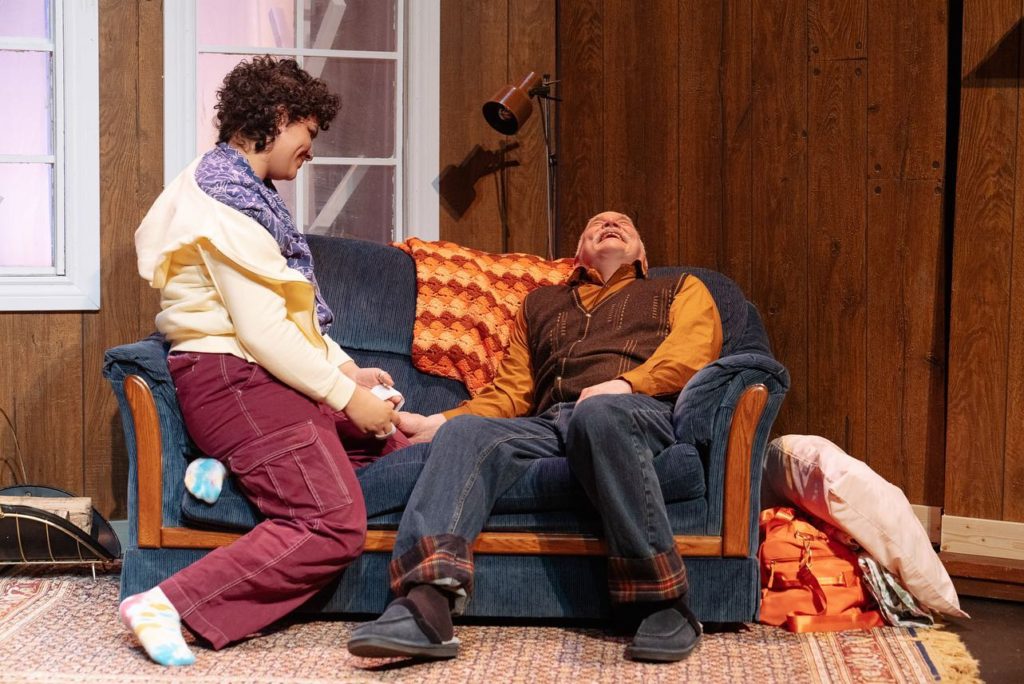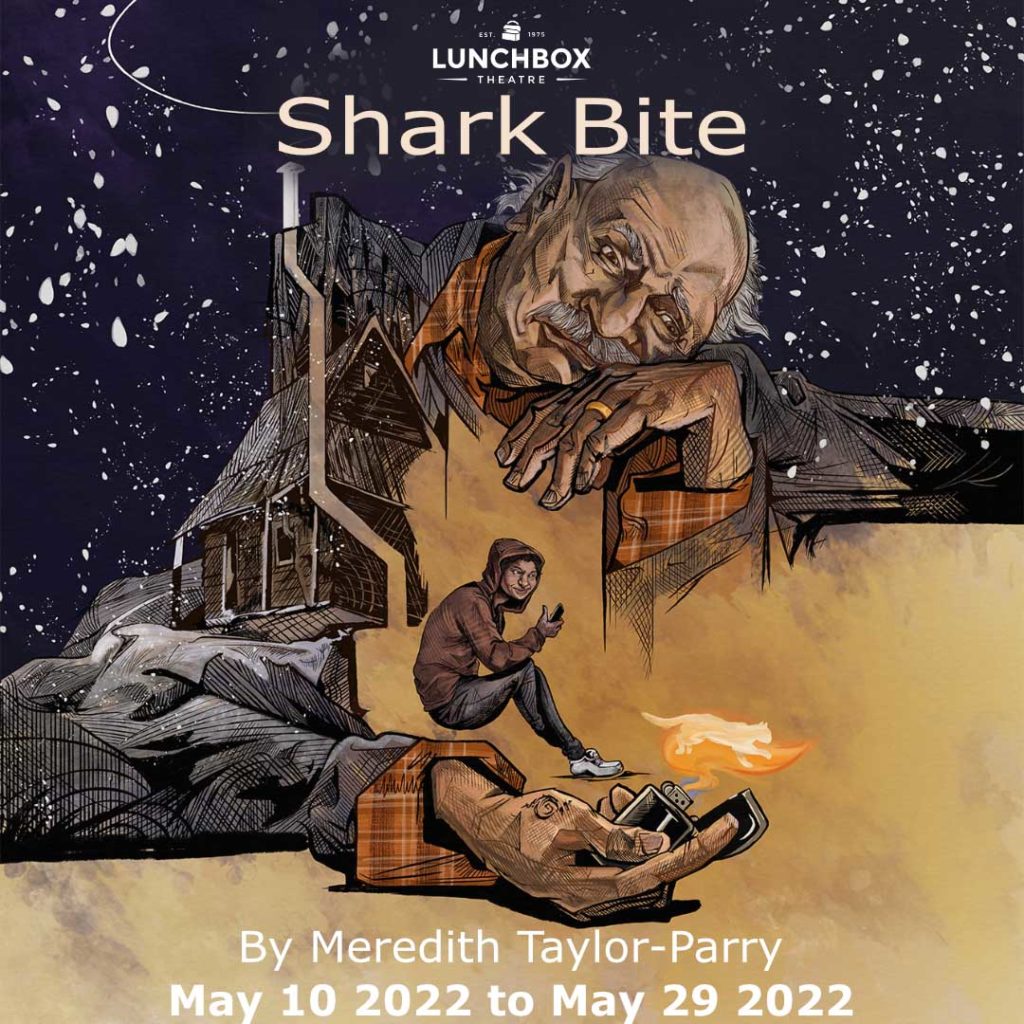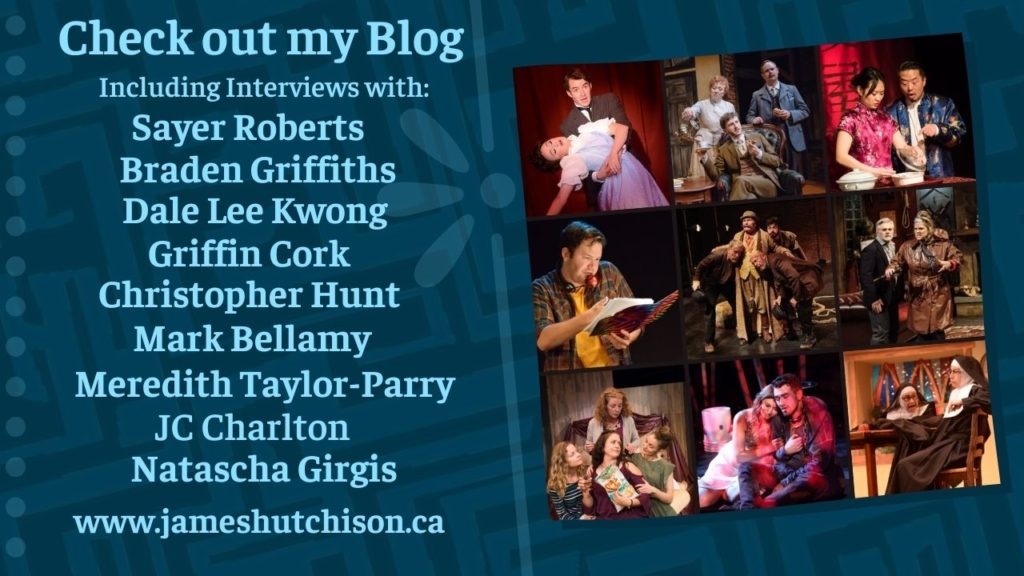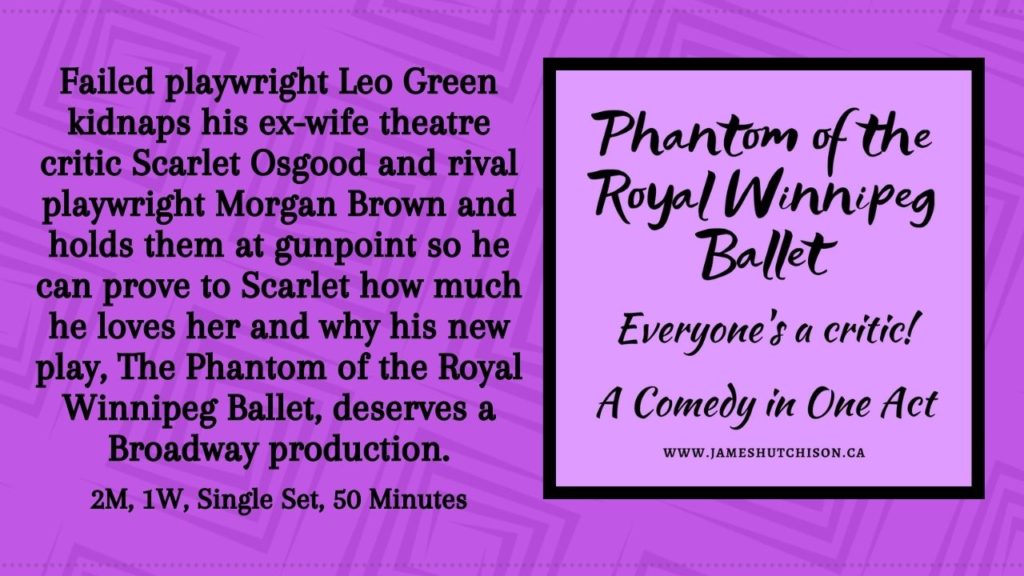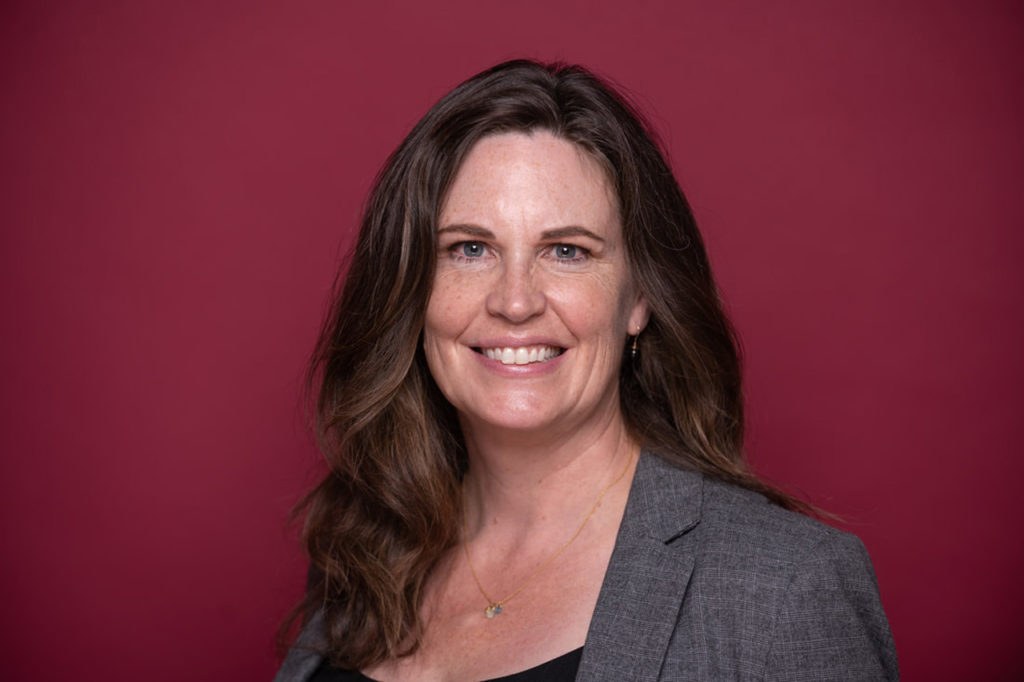
“I believe we move in the direction that lights us up. That captures our attention. That we feel passionate about. But my end destination keeps changing and what makes me happy keeps changing. I thought when I started all of this, I wanted to be an actress. I didn’t know I was going to be a playwright. And I like playwriting a whole hell of a lot better. It’s really about trusting the path and letting go of the outcome because how can you really foresee where the path will take you? If someone comes along and mentors you they can only tell you what path they took. But that’s not you. That’s not your path. I used to feel like a failed actress but if I had taken different steps along the way, maybe I wouldn’t have ended up loving playwriting so much or being as happy as I am being a playwright.”
Meredith Taylor-Parry
Playwright
Playwright Meredith Taylor-Parry whose previous plays Book Club and Book Club II: The Next Chapter were big hits for Lunchbox Theatre has a new play at Lunchbox premiering on May 10th called Shark Bite. The two Book Club plays focused primarily on the challenges and joys of motherhood and marriage while her new play turns its attention to the relationship between a grandfather and his troubled fourteen-year-old granddaughter Ava as the two struggle to find the love and connection they once shared when Ava was a child.
I first met Meredith back in 2011 at Playworks Ink a theatre conference focusing on playwriting run by the Alberta Playwrights Network and Theatre Alberta. At that time Meredith was just beginning her playwriting journey and she was in the early stages of working on her play Survival Skills which won the New Works of Merit Playwriting Contest in 2013 and was produced Off-Off-Broadway in April 2014 by the 13th Street Repertory Company in New York City.
Meredith is a gifted playwright who is as adept at comedy as she is at drama, and her newest play is a touching and heartfelt glimpse into the age-old challenges of family members trying to reach out across the generations. I contacted Meredith back in March to talk with her about Shark Bite, life-changing decisions, sources of creative energy, and playwriting.
JAMES
One of the things we experience both as an audience and as an artist is a divergence of opinion regarding the work we see and the work we create. And by that, I mean the same movie or book or painting can be praised as the most meaningful and deeply moving experience of someone’s life and someone else will not feel a thing. One person can love it. Another person can hate it. Do you have an explanation for that divergence of opinion in ourselves and in others, and what does that tell you about us as humans?
MEREDITH
I think to sum it up in one sentence – people are complicated. Think of how complicated we are in our personalities and our histories and our experience. So of course, one piece of art is going to mean something completely different to someone else, or they’re going to experience it in different ways. That being said, what I’ve always been told about writing was that the more specific you are to your own experience the more you’re going to relate to a wider group of people.
So instead of trying to figure out what your audience wants, go to the heart and truth of your own experience as much as you can, and you will reach more people. That’s how you find your people. Your audience. The people that want to listen to what you have to say and to what story you want to tell. Because if you’re authentic through your writing and tell your story and your truth, then you seem to reach those people out there who are listening for it. They want to hear it because they experienced something similar.
JAMES
Have you ever had a critical moment in your life where someone or something you’ve encountered has resulted in a decision that changed your life’s path?
MEREDITH
Absolutely. I just feel weird about getting into it because I’m going to get pretty personal but what the f*ck! So, I got involved with a guy who was married back on the East Coast and if you flipped open a sociology textbook you could find a paragraph with our pictures above because it was that typical.
“I’m not happy with my marriage. I’m so sad. And now that you’ve come along, I understand what real love is. Maybe I’m finally ready to leave my wife. But no, I made vows. But I’m so unhappy. And you’re so great and amazing. Let’s get an apartment together! No this is moving too fast for me, I need to think. Blah blah blah.”
And I’ve written about this. I’ve written about this a number of times. Trying to work it out. That’s when I first started writing. That’s what I was writing about. It finally came down to this very dramatic scene in a small rural town in Nova Scotia, where I was sitting in a car and all three characters were there. The mistress, the husband, and the wife and they were screaming at each other. And I thought, “Oh my God, this is a Women’s Television Network fucking movie. And I am part of it. I’ve let my life become this drama.” And it was so clear to me that if one person did not withdraw that this crazy dysfunctional silly drama would continue on for who knows how long. That’s a lot of energy and a lot of pain and a lot of suffering. And I didn’t want any part of that anymore and I wanted to step out of the drama.
So, I did. I went home. I talked to my wonderfully smart, kind, and very wise roomie at the time who was my best girlfriend. And she organized a girl’s camping weekend around the gorgeous Cabot Trail in Cape Breton with a few good friends. By the time we had finished that trip, I decided I was going to get in my car and drive across Canada, cause I love a good road trip, and figure my life out. Those women and that weekend changed my life. Never underestimate the power of the female friendship. So, within two weeks, I packed up all my stuff, dropped it off at my parents and started a road trip and ended up out here. That’s how I ended up in Calgary. So – life-changing.
If I hadn’t done that God knows I’d still be back in Nova Scotia. I never would have had a little look-see and gander around Canada and figured out where I wanted to be. I’m sure I never would have ended up in the arts. I never would have had enough guts to go and do my BFA and my MFA. There’s no way I would have ended up as a playwright.
JAMES
Last year I was reading a book called, I’m Thinking of Ending Things by Ian Reed. It was adapted into a movie on Netflix by Charlie Kaufman.
MEREDITH
Oh, Charlie Kaufman. I usually like his movies.
JAMES
It’s a really interesting movie. But in the book, there’s a line that goes, “Who we want to be doesn’t matter when there’s no way to get there.” And that really brought to mind the idea of guidance and mentorship in life for me. It’s like how do we figure out how to become the artist?
MEREDITH
I think our picture of who we want to be isn’t the destination. I believe that. When someone says I don’t know the path to get there it’s like – take a fucking step in the direction of where you think you want to go and then watch the magic happen. Because in my life, every time I’ve done a big bold move the universe has come in tenfold.
For example, you may ask how does an elementary school teacher manage to take a road trip across Canada with no job prospects and end up out in Calgary? It’s because within a week after I’d made that decision to leave, I had a big unexpected financial windfall.
I believe we move in the direction that lights us up. That captures our attention. That we feel passionate about. But my end destination keeps changing and what makes me happy keeps changing. I thought when I started all of this, I wanted to be an actress. I didn’t know I was going to be a playwright. And I like playwriting a whole hell of a lot better. It’s really about trusting the path and letting go of the outcome because how can you really foresee where the path will take you? If someone comes along and mentors you they can only tell you what path they took. But that’s not you. That’s not your path. I used to feel like a failed actress but if I had taken different steps along the way, maybe I wouldn’t have ended up loving playwriting so much or being as happy as I am being a playwright.
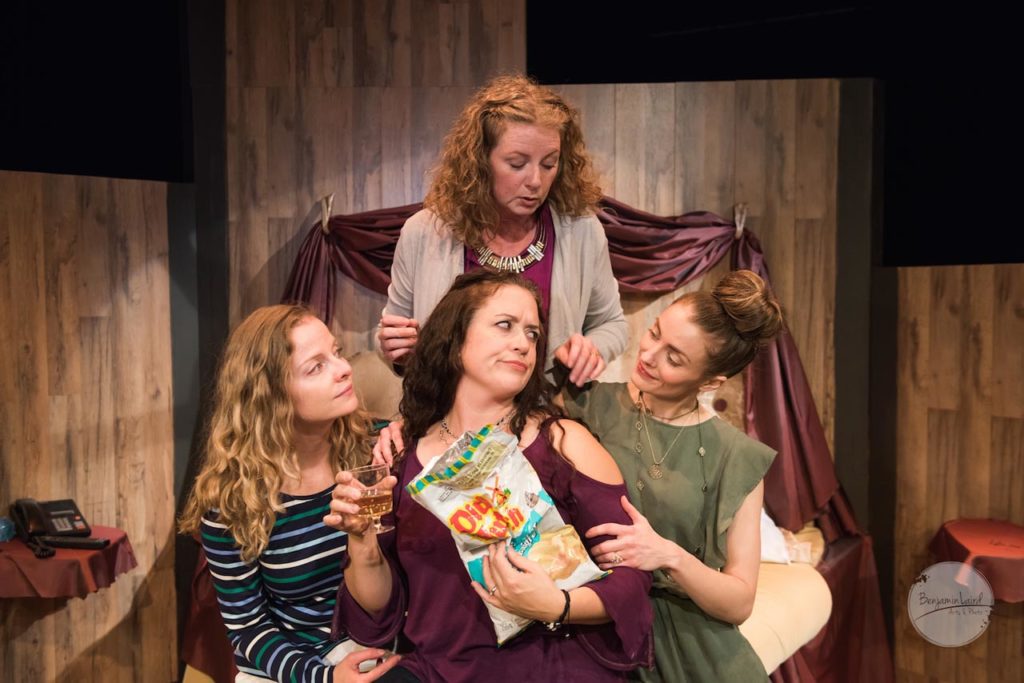
I remember making a decision when I was turning thirty. I already had two degrees. I had a Bachelor of Education and a Bachelor of Sociology. Should I go take a Bachelor of Fine Arts and spend all that money or should I go to SAIT and take the film and television course, which was notoriously hard to get into at the time, but it seemed more practical, because I thought, “Well, I could still be on camera. I’ll just be working in television. Maybe I’ll be hosting a show or maybe I’ll work in news.” And that seemed the more practical choice. And if you took a poll of all my friends, which I did, because I used to do that in order to try and make decisions, they all said, “Oh, SAIT. Doesn’t that sound more practical? It’s only two years. You’re not going to spend as much money. I can see you doing television or radio. You’ve always been interested in it.”
Maybe SAIT was more practical, but I went with my gut intuitive feeling that I would not be happy. I got accepted into SAIT. I probably got in because I was relaxed in the interview. I wasn’t hanging all my hopes and dreams on it. I got in, but then I phoned them up and I said, “You know what, I’m declining my seat because I’m going to go to the University of Calgary and I’m going to take my Bachelor of Fine Arts and Drama.” And the admissions person said, “Well, good luck to you.” He was nice. He was just kind of astounded because people wanted to get into the program so badly.
But I just had this epiphany moment and when I made that decision, I decided that from then on, I was going to make bold moves like that. I wasn’t going to do what culturally looked right or what my friends were telling me to do. I was going to go with my gut. And I feel like I’ve been rewarded. I feel very grateful for the life that I live now. I work hard to let go of the feeling that I’m a loser unless I’m a famous Canadian playwright or I’m making good money doing this. Which is so ridiculous because it’s such a crapshoot and there are so few people that are going to go into the arts and make money. Maybe it should just be enough that you’re happy with yourself and you’re happy with trying to get your work out into the world. Sometimes you do, and that should be sweet enough perhaps.
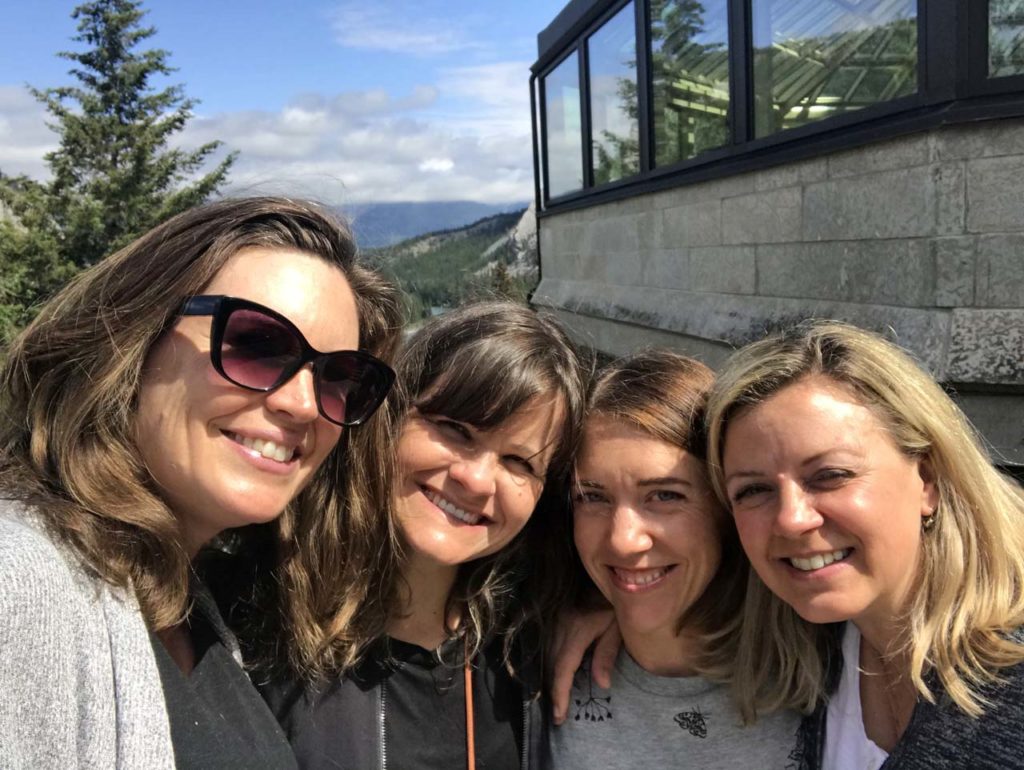
JAMES
You mentioned friends. Who do you have in your life that can be brutally honest with you and how brutally honest are you with yourself?
MEREDITH
I subscribe to the philosophy of less brutality and more gentleness. So, I have a really good group of girlfriends who are honest with me, but we’re all each other’s biggest fans and we’re all really gentle with each other. And as far as being honest with myself in a workshop situation, for example, where you bring your play in and you lay it out and all the actors read it, I invite honesty. I just keep assuring people that I want to know if there’s something that doesn’t feel right to them. And you will get a lot of different opinions because as we said before, people are complicated. People respond differently to art. One scene that someone might love and adore another person may think is completely unnecessary. One character that I’m in love with someone else might find creepy.
So, I let everybody know at the beginning I want their honest feedback and that has come with experience. I certainly wasn’t like that at the beginning of my career. Not at all. But now I can handle anything. Just give it to me straight. I will write everything down because I feel like I have a really good inner bullshit meter that will tell me one of two things. Either: “You know what, that comment doesn’t serve the play OR shit they’re right. I didn’t see it before but now that they’ve given me that feedback I have to go back and fix that part. Oh my God, that entire scene has to come out and I have to write something else. What am I going to do? How am I going to fix that?”
Occasionally, I just note a comment and wait for two other people to tell me the same thing then I’ll go back and have a look at it. But I still have the dial on the bullshit meter that says, “Thanks for your feedback!” while I’m thinking, “No way would I touch that. I don’t care if you think that character is creepy. You can not like that character and that’s fine, but I’m not going to change anything or take that
character out.”
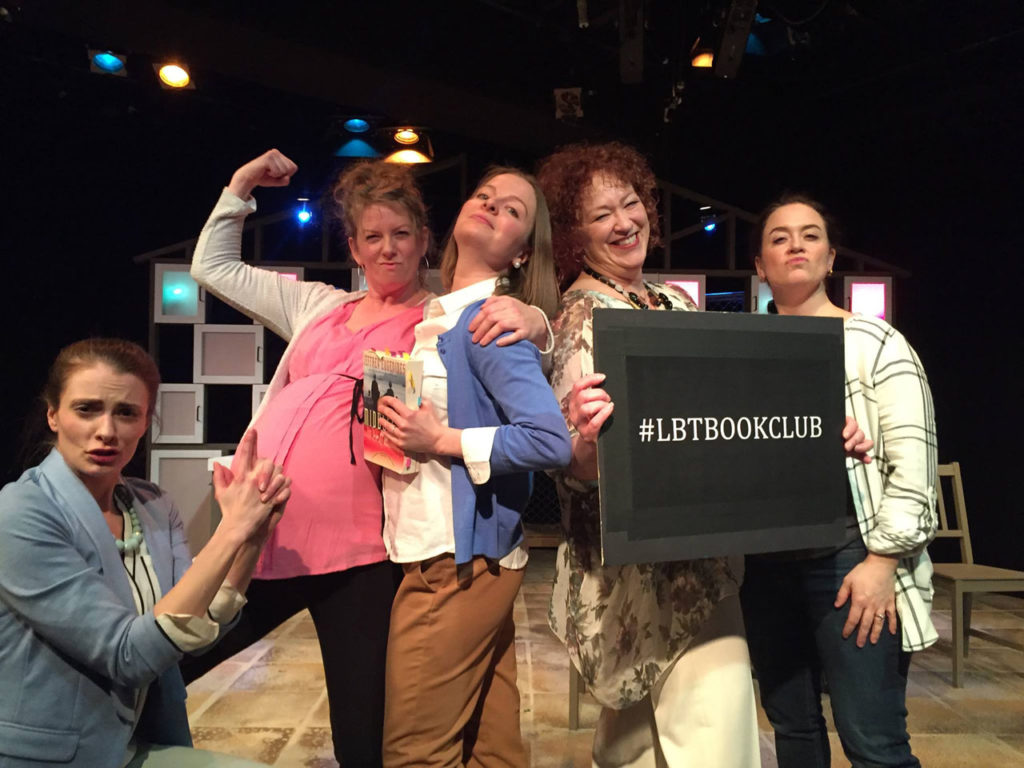
JAMES
Let’s talk about creative energy. That’s been one of the challenges I’ve noticed over the last decade with my own writing because I’ve always thought of writing as something finite. In other words, something that gets used up in the day. It’s like a jug of wine, right? You drink as you write and by the end of the day the jug is empty, and you’ve used it all up. And if you use it up on other activities like blogging or writing commercials, which I used to do, there’s nothing left at the end of the day for your stories.
But just the last week I started to think about creative energy more like turning on a tap. In other words, it’s always available. It’s just you have to turn the tap on to use it. So, I could be at work and let’s say I’m a commercial writer, I turn it on. I create whatever I need to make a living. I turn it off when I head home. And then that night, I’ve got a two-hour block where I could turn the tap on again and do my own creative writing. How do you think of creative energy? The energy you use to create your art. Is it a finite thing to use up in a day? Is it a flowing thing? I’m just curious.
MEREDITH
There’s got to be something in the tap when you turn it on. You have to figure out how you replenish that supply or keep that supply flowing. And for me, it comes from other people. For example, my energy has completely changed since we started talking even though this morning, I had a bit of anxiety about doing the interview because I wanted to think carefully about my answers. But now that we’ve started talking about playwriting, I don’t give a shit because I get so excited and all the anxiety goes away. This crazy energy builds up in me and it’s fun because I love talking about writing and I love talking about plays and I love talking about making art.
And if you look at any of my plays they went from one level to a much higher level it was always because of an infusion of creativity from other artists offering their talent, ability, different points of view and brilliance to the project. For example, with Shark Bite Maezy Dennie, Robert Klein, Chantelle Han, and Ruby Dawn Eustaquio were a dream team. I keep getting dream teams at Lunchbox. Like the dream team I had for Book Club and Book Club II. It’s impossible to have all of that artistic talent in a room together and not get inspired. And I know that I need that. It’s just that sometimes I forget to seek that out. I’m pretty good at doing workshops if a workshop pops up from the Playwrights Guild of Canada or whatever. I will do a workshop because I know that I’m going to come out of that two-hour workshop and be full of creative energy, which is going to help my writing that day or the next day or in the weeks to come.
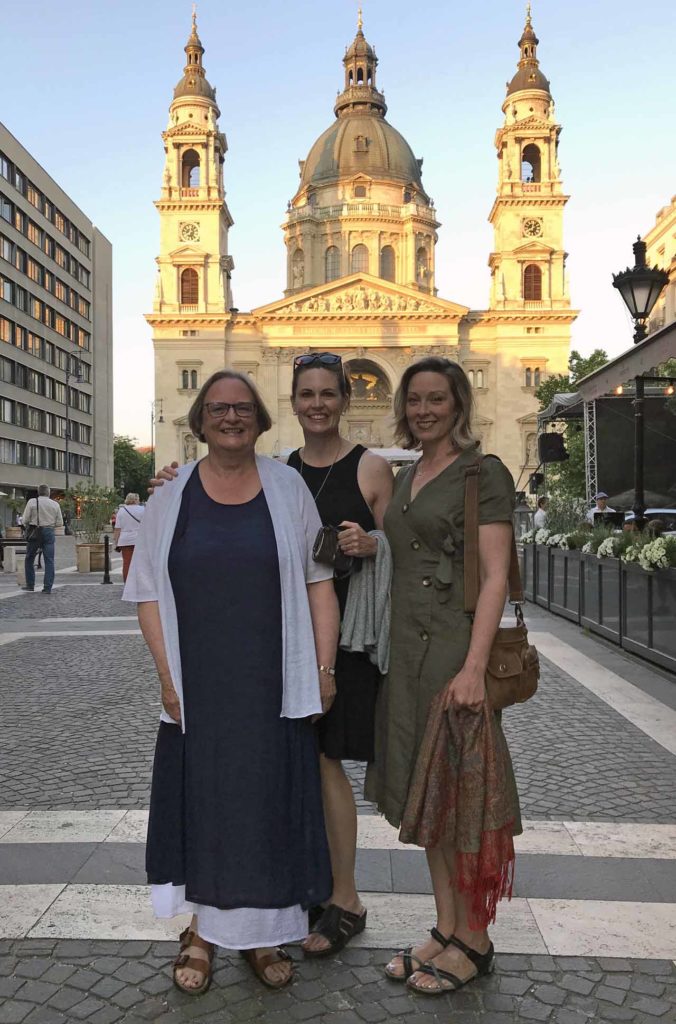
And I need to expose myself to other forms of art if I want to get creative energy to put into my own art. I need to visit art museums. I need to look at visual art. I need to listen to a lot of music and different kinds of music. I need to read fiction. I need to go to plays because that will replenish my creative energy. My mom and my sister and I would go on these amazing opera tours pre- Covid. There’s a company out of Ontario called ARIA tours and they handpick the wine that you’re going to drink in the two-star Michelin restaurant where you’re going to dine. And thanks to my Mom, I’ve gone to New York and Scandinavia and several different countries in Europe, and I’ve eaten great food and toured world-class art museums during the day and seen so much opera. I’m truly blessed to have been immersed in such amazing art experiences.
And getting outside. Walking or gardening or yard work. Even shovelling snow. You’re outside. You’re getting your vitamin D. You’re getting some fresh air. You’re doing something kind of mindless that you don’t need your brain for so your brain starts wandering and coming up with creative ideas or starts solving a problem in a play that you’re working on or comes up with an idea that you might use for a play.
All this stuff’s been said before though. I’m not making this up and you just have find what works for you. And those are the three things I can think of that work for me every time: being around creative people, experiencing art in other forms and going outside and walking or just moving your body in other ways like yard work.
JAMES
How has COVID made an impact on you over the last couple of years? How has it impacted you personally and professionally?
MEREDITH
It broke my stride as an artist, I think. It did a lot worse for a lot of other people, so I don’t mean to sound whiny, but I had just rented a desk at cSPACE in the sandbox which is a co-working space at the King Edward. And I would go in once a week dressed up for work with my lunch and my computer and sit at this desk with other people who were renting space. And there’s all this art in there already and a lot of nonprofits and a lot of arts companies and organizations. And I’d go and I’d sit down and work and in a few months I finished an adaptation I was working on. And then COVID hit, and I thought, “Well, I’m not going to go into work anymore.” And for a while they shut down completely. So, now I’m like, “Should I do that again?” It was productive at the time but right now for whatever reason, I’m not super motivated. I already feel really busy.
And the pandemic was the perfect storm for my teenagers and they both encountered a lot of mental health struggles that were worsened during the pandemic and came to light during the pandemic. So, we started a whole journey with both of my kids and that’s taken its toll. It’s been really hard on us as a family but we’re getting through it.
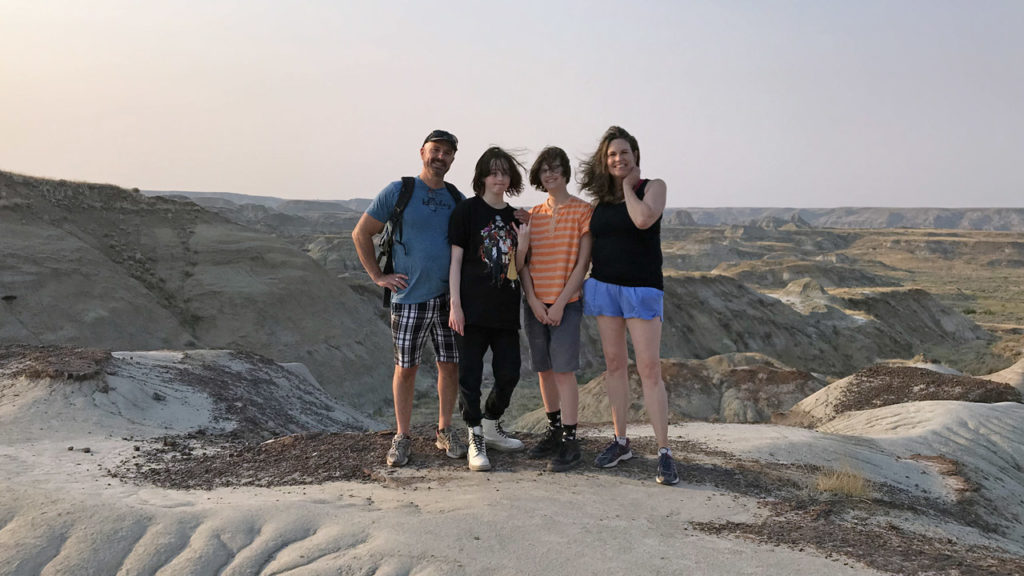
But it also gave me time to rest and say, “Okay, we’re in a pandemic right now. I’m going to support my kids with their mental health struggles and get my kids through grade nine or ten or whatever it was because they’re working from home and they’re going to need my support to get through it.” Neither of them was doing very well independently. They really needed support and help to get through the online learning. So, “I’m going to give myself a break as a writer and I’m not going to feel like I need to be writing every day right now.”
JAMES
You mentioned you have a production coming up with Lunchbox Theatre called Shark Bite. This is the third play of yours to grace the Lunchbox stage and here’s the description, Ava a troubled urban teenager goes to her grandfather’s remote cabin for a visit. The two soon learn that the easy days of their relationship are far behind them and when George tries to find some common ground between them through a hike in the woods, a dangerous turn of events leaves Ava in the position of trying to save them both.
First, I’m curious, Ava’s fourteen and I’m just wondering, what were you like when you were fourteen? What did you think about the world? What was your life like? What did you spend your time doing? And reflecting back now, how much of that fourteen-year-old version remains today and how much did you use it to create the character?
MEREDITH
Oh, God, that’s a tough one. That’s a big question. Okay, so the first part of the question was thinking about yourself at fourteen and I see myself as a gawky, gangly teenager. My nickname was String Bean. And I was a card-carrying perfectionist. I was working really hard in school to try and get good marks. I did extracurriculars. I did sports. Even when they made me miserable I still did them. And then I was looking at everybody else and going why can’t I just be normal like her? Or comparing myself to other people because there was always someone who was better on the basketball team than me and there was always someone who was getting higher marks than me and had a boyfriend when I didn’t. So those kinds of things. Feeling like there’s something wrong with me. That I’m out of place. That I don’t fit in with other people.
I did spend time out in the woods with my father because he was a big outdoorsman. So, the stuff about hiking through the woods in the play and the spruce gum and looking at animal tracks would have still been a part of my world a little bit at fourteen. I don’t know how old I was when I gave up snaring rabbits. When I finally went, “Oh my God this is horrible. And traumatic.” Little t. That was definitely still part of my world at that time.
But when I was writing the play, I also tried to look at it from the point of view of teenagers and I wrote an imagined character who wasn’t really one of my teenagers, but I was certainly drawing from some of their experiences. And then Maezy helped me too in that final workshop that we did in 2021 with Stage One. She helped me be more truthful and authentic. There’s pretty much no other place I’d rather be than sitting in a room with a bunch of actors, trying to make a play better, and then getting to see it. I’m grateful for all the people that I get to work with through Lunchbox and I’m grateful that I’m going to get to work with them again because it’s a pretty damn great place to work.
JAMES
One of the themes in the play is an examination of self-harm. And the play really made me think about our culture and the fundamental role punishment plays in our society. The desire to punish ourselves is a message that might find its roots in the very nature of our own culture. In other words, ideas like no pain, no gain and the need to make sacrifices in order to achieve something. So, I’m curious about your own thoughts and what you hope your play opens up in terms of a discussion about self-harm and punishment.
MEREDITH
Self-harm wasn’t originally in the play. I workshopped the play with the St. John Theatre Company just before the pandemic in the fall of 2019. Pamela Halstead was the dramaturge and I also worked with a lot of really talented playwrights in that little circle. We were all finalists in a playwriting competition that was put on by the St. John Theatre Company and in order to enter the competition you had to have ties to New Brunswick or New Brunswick roots. Which I do. I was born there.
And one amazing playwright in attendance in Saint John, John-Michel Cliche said that when he thought about the presence of the lighter in the play he immediately thought about self-harm, and I replied – “Wow.” Sometimes you put things in your play, and you know they’re really important, but you don’t know what the hell they’re in there for. And then someone like Jean-Michel comes along and says, “Well, what about this?” And that opened up the idea of self-harm and I started thinking about it, and then it came into my own life through what my teenagers have been experiencing over the past couple of years. And then it came into the lives of a lot of my parent-friends, who have teens, and you know, pandemic aside, just being a teenager in this age is really, really, really, hard. Right? In this age, of TikTok.
So, I believe there’s a reason why Jean-Michel turned to me and said, “I thought about self-harm when she took that lighter.” Coincidence? I’m not sure. I’m experiencing this with my kids and I know so many people who are experiencing this and this needs to be talked about because this is a big commonality among teenagers right now that’s not being talked about a lot. And there are parents from my generation who are going, “What the hell? I don’t get this. I don’t understand this at all.” So, I think it’s really good if we talk about it a bit and we get some more information out about it and it sparks conversation among audience members.
I also think it really illustrates the generation gap between Ava and George because he’s an even older generation because he’s the granddad and how does a teenager maintain a relationship with a grandparent? How did I maintain a relationship with my grandparents at that point? When you’re fourteen and vulnerable and going through stuff that you don’t want your grandparents to know about because they might not understand it or they might judge you for it, so you don’t really show them who you are. You just have this kind of superficial relationship. They just know that you do well at school and you like horses. You don’t talk to them about what’s really going on. I felt there needed to be issues that illustrate the characters struggling to connect while dealing with topics that the granddad doesn’t understand.
And I don’t know everything there is to know about self-harm but from what I’ve learned about self-harm, and from what people have told me – because I haven’t experienced it myself – is that it is different from punishment. My understanding of it is that you’re inflicting a physical pain to avoid or rescue you from or to stop a profound emotional pain that is being visited upon you, rather than it being a punishment. It’s more like an action to protect you from pain, or to take you out of a painful place that you’re in so that you can avoid experiencing emotional pain.
For more information about self-harm check out the links below:
- MyHeatlth Alberta Information
- Canadian Mental Health Association Understanding and Finding Help for Self-Harm
- National Alliance on Mental Illness: Additional information about Self Harm US Resource
JAMES
When you think about life how much do you think about the cycles we experience and the linear progression of time we experience because there are cycles and an individual cycle can be different. So, we have the seasons, and each season has similarities to previous seasons, but each season is also unique, right? This summer was hotter than last summer or whatever. And just as we experience cycles in life on an annual basis, we’re also on a linear track. We’re getting older each day. So, our time here diminishes. And when you look at life, how much do you think about the cycles of life and how much do you think of the linear progression of time?
MEREDITH
I think more about cycles. That’s how I mark time. I really love the change of seasons in our climate. I could never be a snowbird. I have friends who are retiring, and I look on Facebook and they’re like, “We’re snowbirds now and we’re going to go down and live in Florida.” My grandparents did that. And I think, “I couldn’t do that. I’d miss the change of seasons. It’s nice to take a break from winter and go away for a couple of weeks but I like that cycle.”
And every year it seems to light me up even more. I’ll be sitting at my window, and I look outside, and I see birds starting to come around because it’s starting to get a little bit milder and I’ve got bird feeders in the yard and I’m like a little kid, “Oh my God, I saw my first Robin.”
And as I get older that stuff becomes more important and interesting to me. I notice it more. I enjoy it more. I enjoy that spring cleanup and getting out when the earth is starting to soften up a little bit and then you go out and you work in the yard all day and you smell the dirt and the air starts to warm up a bit in the spring. And I love the fall equally with all the smells and sometimes that beautiful weather that keeps going into fall when the skies have never been bluer, and it’s really crisp in the morning. And I love the first snowfall of the year and so I think I focus more on cycles.
And I know there are cycles with parenting because parenting is tough. And it makes parenting a whole lot easier because when you’re in a really tough cycle, or a really tough phase it really helps to look at it and realize, “You know what, this isn’t going to last forever. And right now, it’s really, really tough. But in a few years, they’re going to be a grown-up and we’re going to be sitting down having a coffee together, or going to a movie, or going for lunch and everything is going to be okay.” And it’s really useful to remember that when you’re going through a difficult phase.
JAMES
This too will end.
MEREDITH
“This too shall pass.” My mother used to say that all the time and I honestly believe that. And maybe it sounds trite, but it helps me sometimes to say it to myself. When I’m in my own little mire of bad thoughts or bad times or bad luck. It can help me to say, “This too shall pass.” So, I think in cycles. Definitely cycles.
JAMES
Back in January 2016, we did an interview where you talked about your play Survival Skills which is a fictionalized story about a father committing suicide based on your own experience with your own father completing a suicide after he had received a terminal diagnosis, and in that interview, you said, “You want to write the kind of play where people are going to go home and talk about it, think about it and talk about themselves a little bit. You know, my God, if it got people to think about their own mortality a little bit, how could that be a bad thing? We all run around scared to talk about it, but we’re fascinated by it at the same time. The idea that we’re mortal, just to have that discussion opened up wouldn’t hurt.” So, I thought, let’s talk about it. Let’s talk about mortality and the fact that we’re all at some point in the future going to die. Have your own thoughts on mortality evolved over the course of your life?
MEREDITH
I think they’ve evolved but I can’t really say I spend a ton of time thinking or talking about it either. You know, it’s funny, at that point in time, I was obviously thinking we need to talk about death. It needs to be in a play. But right now, I don’t have a lot of thoughts to share on the topic to tell you the honest truth. I still think what I said was valid and I like what I said.
JAMES
Maybe there are times in your life where you feel the need to discuss your mortality, and maybe there are other times you don’t.
MEREDITH
And maybe you could take out the word mortality and punch something else in there like self-harm or punishment or shame or any of the other things we’ve talked about. I mean isn’t that what one hopes a play does? When I wrote Book Club a lot of thought went into how many moms are experiencing the same things, and shame being one of them, for not being the best mother on the planet. A couple of my plays deal with that theme. But if we don’t talk about it and bring it out into the light, we’ll just go on pretending to the people around us that we’ve got it all under control. Perhaps when we open up and laugh about the things that make us feel ashamed as moms or just human beings and shine a little light on it, perhaps that is a little bit healing.
There’s a Brene Brown quote, and I have it on my mirror in my bathroom. “I think laughter between people is a holy form of connection, of communion. It’s the way you and I look at each other and without words, say, I get exactly what you’re saying.”
So, if you write a funny line in your play about something rather important and your whole audience is laughing about it, there’s a shared humanity in that. Perhaps the audience is thinking “I get it. I get what you’re saying. I’m with you.”
Besides the fact that everyone just laughed at something you wrote down and were fortunate enough to bring to actors and a director and the rest of your creative team and they’ve poured their creativity into it and together you’ve just made a big room of people laugh and walk out together feeling happy and connected.
I mean my God, what more could you ask for?
